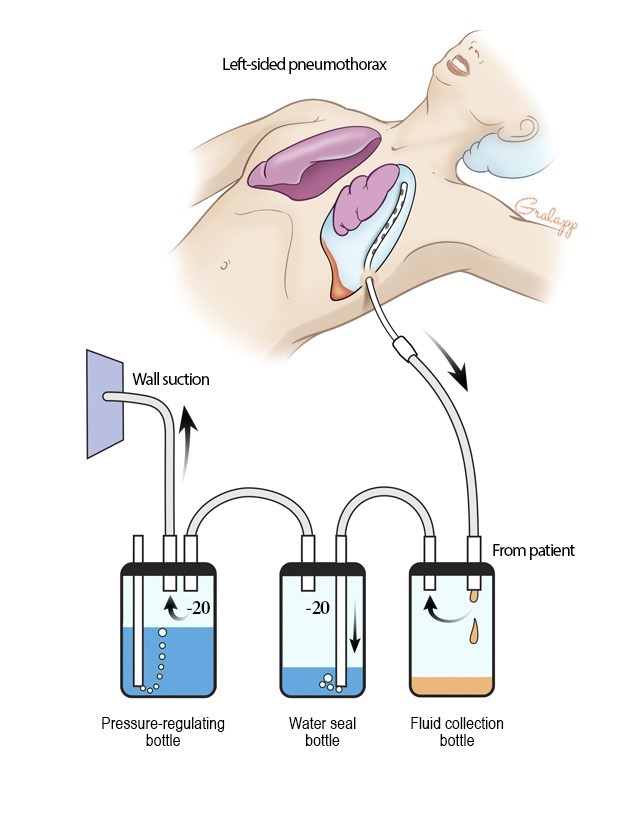A nurse is assisting in the care of a client. Nurses' Notes 2000:
Client presents to emergency department and states, "I have been assaulted." Client was immediately placed in a treatment room.
2015:
"Client states they were out with friends this evening and had "a little too much to drink." Client states that they fell asleep at their friend's house and when they woke up all of their clothes were off and their genitals were sore. The client states, "I think someone had sex with me, but I don't remember anything." Client reports history of depression. Client is a full-time college student who lives with roommates. Client admits to drinking socially but denies illicit drug use and tobacco use.
Which of the following interventions should the nurse plan to implement?
Select all that apply.
Contact children and youth services
Provide resources to the client for the local Alcoholics Anonymous chapter
Request a consult for case management
Maintain a safe and private environment for the client
Administer sexually transmitted infection prophylaxis
Provide resources for local support services
Correct Answer : C,D,E,F
Case management can be beneficial in situations involving assault to help coordinate and provide ongoing support and resources for the client. This intervention is appropriate in this scenario.
Ensuring a safe and private environment is crucial to protect the client's confidentiality and provide a supportive atmosphere during this difficult time. This intervention is necessary. Since the client reports being assaulted and has sore genitals, it is important to consider the risk of sexually transmitted infections (STIs). Administering STI prophylaxis can help prevent potential infections.
The client may benefit from additional support services such as counseling or support groups. Providing resources for local support services can help the client access the necessary help and support they need.
Contacting children and youth services is not applicable in this scenario as the client is a full-time college student and not a child or youth.
While the client mentioned drinking, it is not explicitly stated that they have an alcohol addiction or problem. Therefore, providing resources for Alcoholics Anonymous may not be the most appropriate intervention at this time.
Nursing Test Bank
Naxlex Comprehensive Predictor Exams
Related Questions
Correct Answer is A
Explanation
Ensuring the device is kept below the level of the client's chest is important to ensure that the drainage system functions properly by allowing the fluid and air to flow downhill. Placing the device below the level of the chest helps facilitate gravity drainage.

Continuous suction is required for proper functioning of the chest tube drainage system. Clamping the chest tube can disrupt the suction and impede the removal of air or fluid from the pleural space. Only in specific circumstances, such as when changing the drainage system or assessing for air leaks, may the healthcare provider request a temporary clamping of the chest tube.
Positioning the client semi-Fowler's, with the head of the bed elevated, can help promote lung expansion and improve oxygenation. The specific positioning may vary depending on the client's condition and the healthcare provider's recommendations.
The nurse should empty the collection chamber as per the facility's protocol, which typically includes monitoring the drainage and emptying it when it reaches a certain level. Regular emptying of the collection chamber helps maintain proper functioning of the chest tube system and allows for accurate measurement of drainage output.
Correct Answer is B
Explanation
In Islam, it is customary to position the deceased's head toward Mecca, which is considered the holiest city in Islam. Mecca is the direction toward which Muslims face during prayer. Orienting the client's head toward Mecca is a sign of respect for their religious beliefs and customs.
While it is common in some cultural and religious practices for family members to stay with the deceased until burial, this may vary depending on the specific beliefs and customs of the family. It is important to respect the family's wishes and cultural practices, but it is not solely specific to Islam.
The duration of time for a family member to stay with the deceased can vary depending on cultural and religious practices, but there is no specific set duration of 8 hours in Islamic customs.
In Islam, the direction of Mecca is significant, and positioning the client's head toward Mecca is the customary practice. There is no specific requirement to position the head northward in Islamic customs.
Whether you are a student looking to ace your exams or a practicing nurse seeking to enhance your expertise , our nursing education contents will empower you with the confidence and competence to make a difference in the lives of patients and become a respected leader in the healthcare field.
Visit Naxlex, invest in your future and unlock endless possibilities with our unparalleled nursing education contents today
Report Wrong Answer on the Current Question
Do you disagree with the answer? If yes, what is your expected answer? Explain.
Kindly be descriptive with the issue you are facing.
